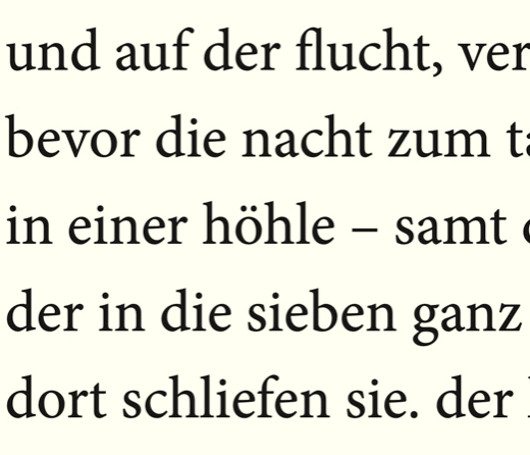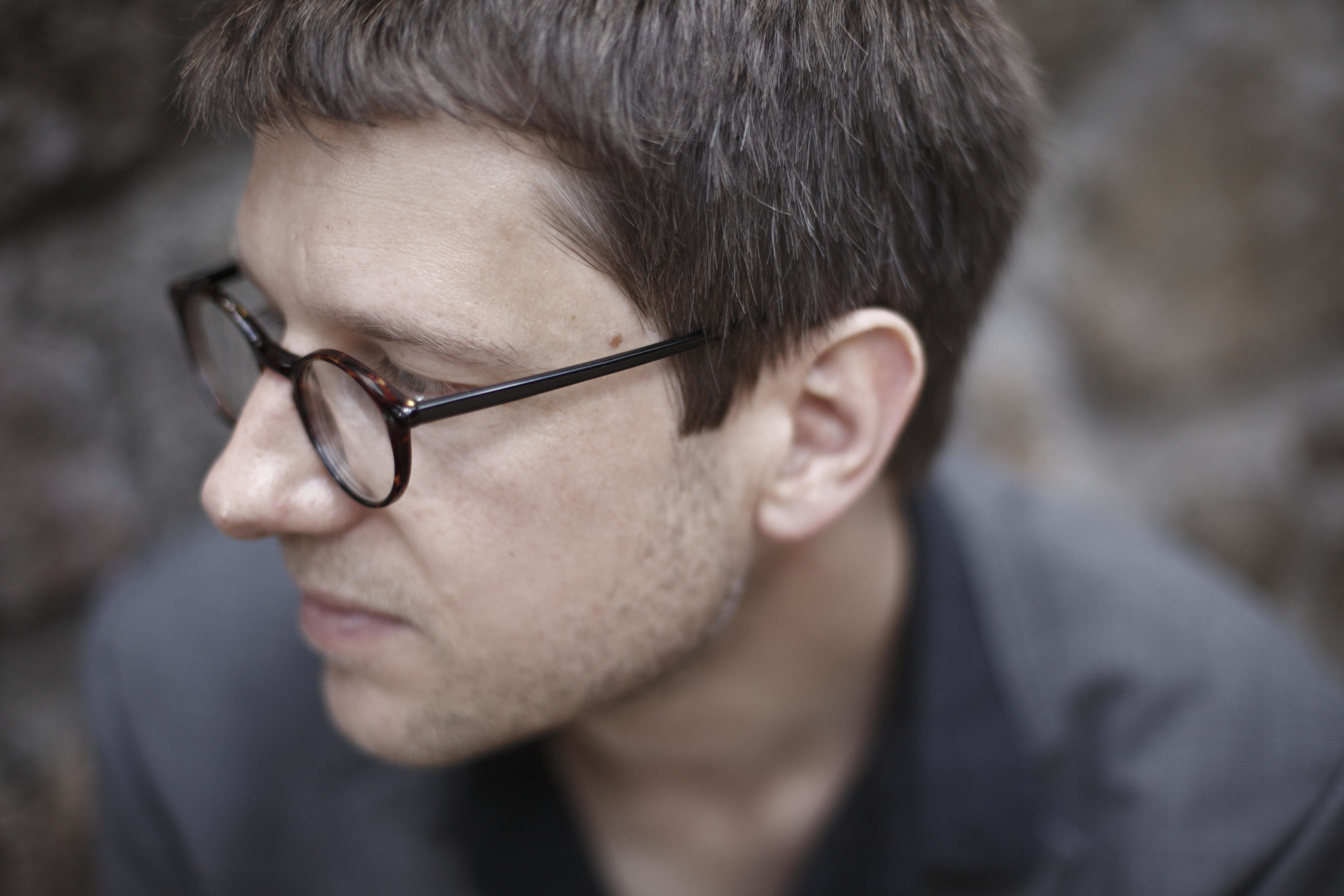
ephesusghasele
Und er lief, da war der Tore
Wart’ und Turm und alles anders.
Goethe, West-östlicher Divan
ein früher tod war ja erwartbar
bei einem kaiser, der so hart war
in glaubensfragen (maler stellen
ihn kalten blicks und stark behaart dar).
so waren sieben junge männer
im hals- und handumdrehen startklar
und auf der flucht, versteckten sich,
bevor die nacht zum tag geklart war,
in einer höhle – samt dem hund,
der in die sieben ganz vernarrt war.
dort schliefen sie. der kaiser ließ,
als fels um fels herangekarrt war,
das loch vermauern, doch sie schliefen,
woche um woche, quint- um quartjahr,
jahrhunderte, jahrhunderte,
so tief, daß schlaf mit tod gepaart war
oder so schien, und eine hand,
die ungeheuerlich, doch zart war,
drehte sie um im schlaf bei dem,
was höhlen- oder himmelfahrt war.
Translation by Robin Robertson
English version by Robin Robertson,
based on a literal translation from the German by Iain Galbraith
Then he ran. Now the gateway,
towers, turrets, all looked different.
Goethe, ‘The Seven Sleepers’, West-Eastern Divan
An early death was considered likely
with an emperor so hard, so severe
in matters of belief, that painters showed him
shaggy-faced, with eyes like sleet.
And so the seven of them, seven young men,
prepared for a quick escape, to flee –
and when they did, they hid themselves
before morning, before the night had cleared,
in a cave – together with the dog
who loved them all, and curled up at their feet.
And there they slept. Meanwhile, the emperor
ordered cartloads of rocks to the breach
and the cave blocked up, but still they slept,
week after week, years upon years,
for centuries, centuries,
so deeply, that death was twined with sleep
or seemed that way – and an angel’s hand,
dreadful, delicate, turned them gently
on his way to heaven or down to hell,
rolling each one over in their sleep.
They woke hungry, the rocks all crumbled away,
thinking the new morning they could see
was just one night old, and sent to town
the youngest – skilful and keen –
who found a baker’s where the court used to be.
Th e baker was startled, paralysed with fear,
calling his friends: for on the proferred coin –
long-hoarded – was the face, engraved and clear,
of an emperor dead for hundreds of years.
Who could doubt it? Around him, crowds seethed;
the whole town, marvelling at him,
this boy from the past, yet standing here,
whose people – uncles, grandchildren,
great-grandchildren – all long buried,
were nothing but dust, while he himself
was still young, still trying for a beard,
his own final heir: aeons old,
but not old, not even elderly.
So they set pots simmering, and left Ephesus
before the millet was ready,
heading for the cave, and found there
a clan of seven: spared – freed
from dying – found with him and him
and him and him and him and him
held for eternity; for the time being.
Additional Texts
Click here to view a literal, annotated translation of Jan Wagner’s original poem by Iain Galbraith.
Audio
Jan Wagner reads Ephesus Ghazal in the original German
Robin Robertson reads Ephesus Ghazal in English

